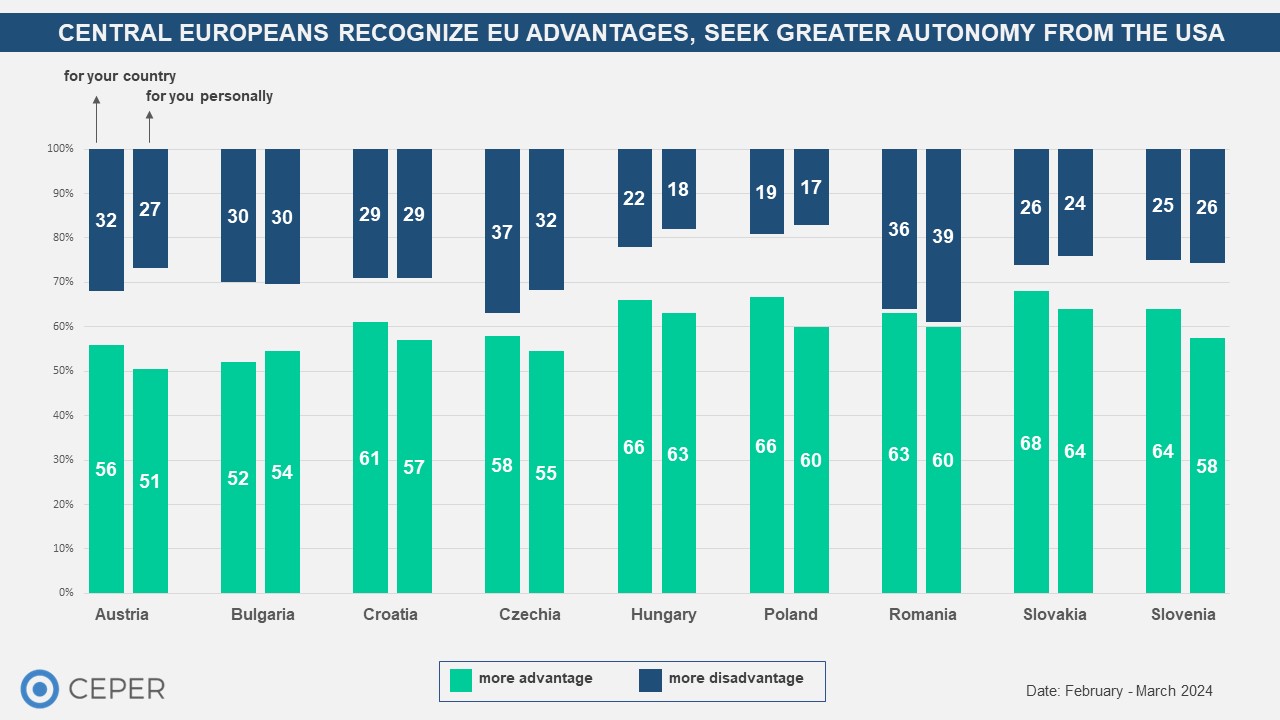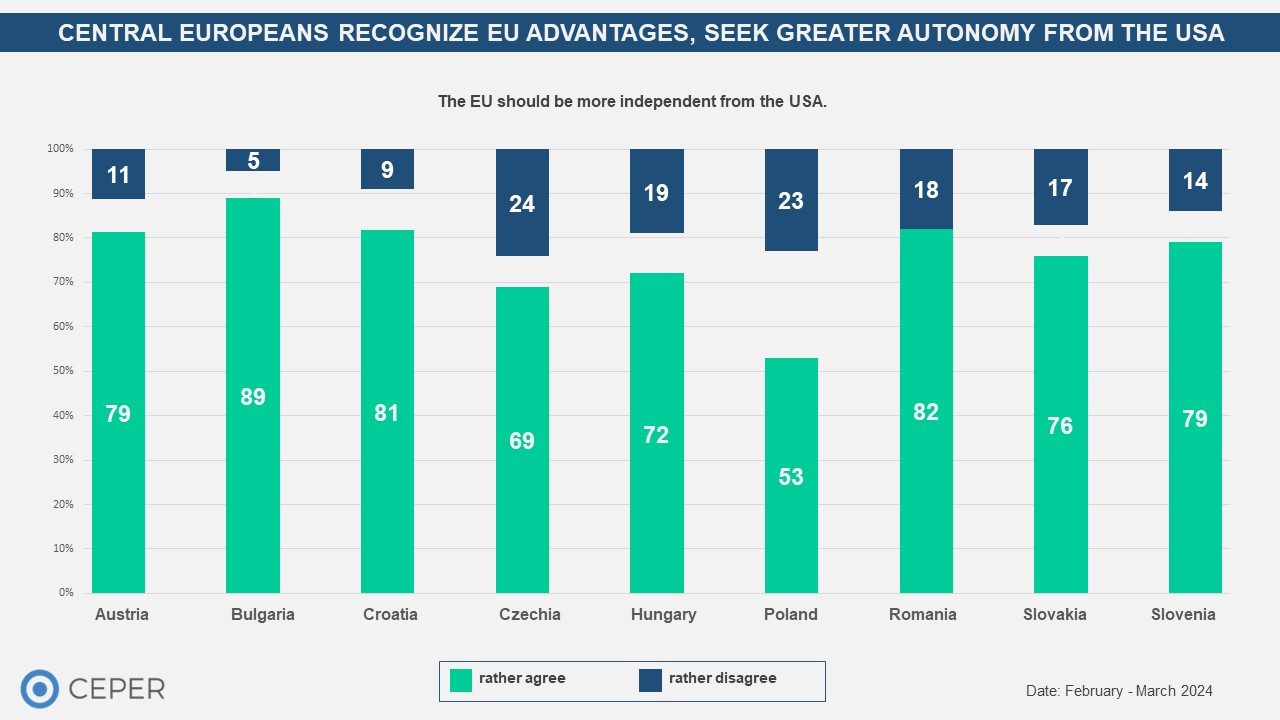Central Europeans Recognize EU Advantages, Seek Greater Autonomy from the USA
A formidable majority of respondents from 9 Central European Countries agreed that EU membership is advantageous for their country as well as for themselves personally, while they were simultaneously convinced that the EU should become more independent from the USA.
Approaching the 20th anniversary of the 2004 EU enlargement when 10 Central European countries joined the European Union (including some of the surveyed countries, Czechia, Hungary, Poland, Slovakia and Slovenia) CEPER conducted a study in 9 regional EU member states about the advantages and disadvantages of EU membership as well as attitudes towards the EU’s relationship with the USA given recent geopolitical developments. In all of the 9 studied countries the absolute majority of respondents said that being part of the EU led to more advantages than to disadvantages both for themselves personally and for their countries as well. While the region agrees on enjoying the benefits of EU membership repliers also believed that the EU should act more independently from the United States.

Between 51 to 64% of respondents said in the 9 studied countries that in their personal lives they saw more benefits to their country’s EU membership than drawbacks. Similarly, between 56 to 68% of repliers agreed in all of the surveyed countries that being part of the EU resulted in more advantages than disadvantages for their countries. Else than in Bulgaria in every country more repliers believed that EU membership benefited their countries than how many believed that it resulted in advantages for themselves personally. In Austria 56% of respondents were confident that EU membership led to gains for their country, while only 51% thought that it resulted in benefits for themselves personally. Not less than 3% more repliers believed that membership was rather advantageous for their country than for themselves in Croatia, Czechia, Poland, Romania, Slovakia, Slovenia and Hungary as well.
While the surveyed Central Europeans were confident in the advantages of their country’s EU membership, they were also in favour of the Union becoming more independent from the USA. The absolute majority of survey respondents in all of the studied countries agree with the following statement: ‘the EU should be more independent from the USA’, thereby outlining a vision for a more autonomous Union amidst today’s troubled era with an ongoing military conflict on the European continent. In three countries (Bulgaria, Romania and Croatia) over 80% agreed with the above-cited proposition, while in four member states (Slovenia, Austria, Slovakia and Hungary) between 70-80% of respondents thought that the EU should increase its strategic autonomy from the USA. In Czechia 69, while in Poland 53% expressed support for an EU that is not overly reliant on the USA – thereby, in the 9 studied Central European countries this statement attracted the least backing (but nevertheless, an absolute majority support) in Poland.

Methodology
The opinion-poll survey was carried out in 9 countries in the Central European region: Austria, Bulgaria, Croatia, Czech Republic, Hungary, Romania, Slovakia, Slovenia and Poland. The data were collected between 19 February and 20 March 2024. The survey was conducted by telephone with 1 000 respondents per country. The sample per country is representative by gender, age and type of settlement.
About us
CEPER is the brand of CEPER Group GmbH. The CEPER acronym abbreviates Central European Perspectives. CEPER's area of expertise is Central European affairs, the company offers media monitoring, market research and opinion polls from the region to its clients.